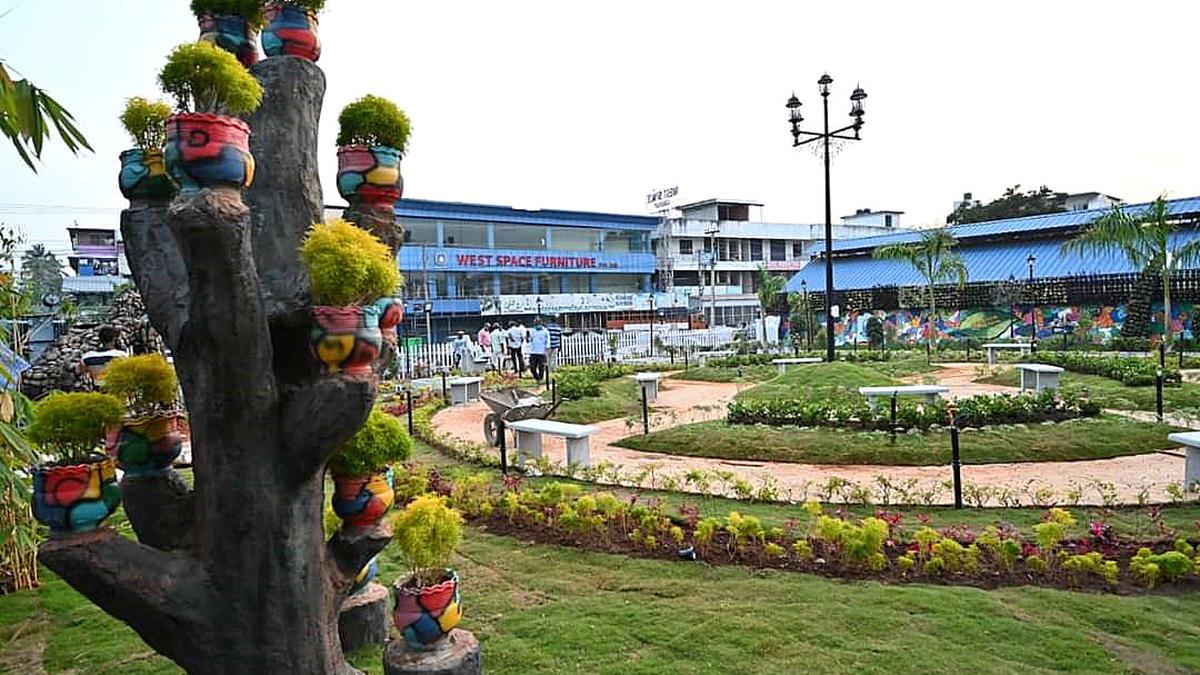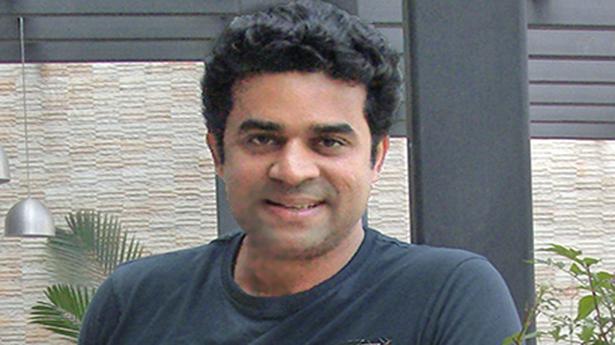A view of the Sanmathi garden created by the Thiruvananthapuram city Corporation at the Erumakkuzhi garbage dumping yard after removing all waste.
With Thiruvananthapuram’s centralised waste treatment facility closing down a decade ago and with the capping of most of the city’s legacy waste dumps, the possibilities of waste dump fires as has happened in Brahmapuram in Ernakulam district are relatively lesser in the capital.
Yet, in light of the recent disasters, the city Corporation has stepped up its waste management efforts, identifying waste dumps formed recently for biomining. The civic body is also revamping its material collection facilities with fire protection systems.
Following protests from the local population, the Vilappilsala waste treatment plant was closed down in 2011. The legacy waste that had piled up around the plant was capped, with arrangements to prevent the leachate from flowing out and water from seeping in. The capping work was done before biomining process was introduced here. The biomining process involves the removal and segregation of all legacy waste and retrieval of the land as such. Now, the Corporation is planning a mini township at Vilappilsala.
After the closure of the plant, Erumakuzhy near East Fort, became one of the dumping yards. Heaps of plastic waste of all kinds, broken glass pieces, foot wear, etc. used to pile up on these grounds for years before the land was retrieved through biomining in 2020. The whole area was turned into a park. Later that year, another large piece of land behind Palayam market was reclaimed through biomining.
“All of the legacy waste dumps in the capital are now closed. Now what remains are the dumps that were formed in the past few years. We have found a few such dump yards in the Vizhinjam area, in Kottapuram, and harbour wards. The Haritha Karma Sena became active in these areas only recently. We have already planned a project for biomining in these areas. Altogether, across the city, we now hardly have 2000-3000 cubic metres of waste dumps to take care of,” says a Health wing official of the Thiruvananthapuram Corporation.
Since the closing down of the Vilappilsala plant, the Corporation has been attempting to nudge the city residents to shift towards decentralised waste treatment mechanisms. Pipe composting, one of the earliest methods with the installation of pipes for composting organic waste in households, was not very successful. The kitchen bins that came later also found only limited success.
Community-based aerobic bins were introduced with the aim of providing facilities to hand over biodegradable waste for those who do not have facilities to process at home. Around 50% of these are running reasonably well, while the rest of the half are in a dilapidated state. Many of these do not have sanitation workers to take care of them. Out of the total of 517 aerobic bins in the city, 115 needs total replacement while 120 needs maintenance work. The Corporation has now deployed an agency to carry out the work.
The Corporation, at present, does not have a formal system for collecting biodegradable waste from houses, although some groups have been doing it unofficially in some wards, after making arrangements with pig farms. The civic body has, as part of its efforts to activate Haritha Karma Senas in all wards, brought some of these groups into the official mechanism.
As for the large quantities of meat and other biodegradable waste from the city’s restaurants, the Corporation had four years ago made arrangements with 19 agencies. However, only 14 of them are currently involved in the process. The meat waste is mostly taken to pig farms located in adjacent panchayats but inadequate facilities caused problems for residents in some areas. In 2019, the PCB had issued an order to stop the transport of food waste to pig farms in the district’s outskirts, stating that the disposal of waste in pig farms and rubber plantations was in violation of Solid Waste Management Rules, 2016. The civic body is now making a fresh attempt on this count.
The waste from the city’s slaughterhouses are being taken to a meat waste rendering plant. The Corporation is about to enter into an agreement with a private agency for collection of used sanitary pads, diapers and bio-medical waste. The city is currently surviving without major waste-related issue largely thanks to contracts with various agencies and due to a limited shift to decentralisation and effective segregation.





